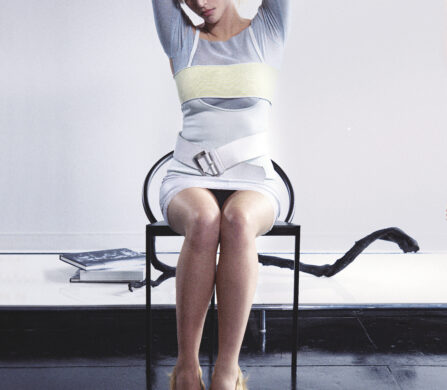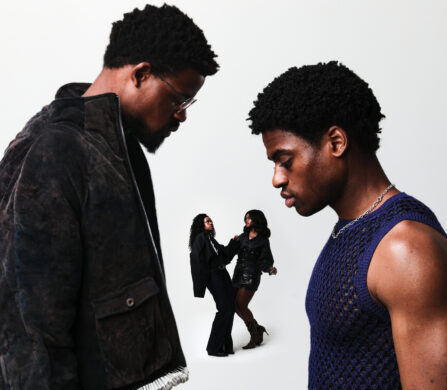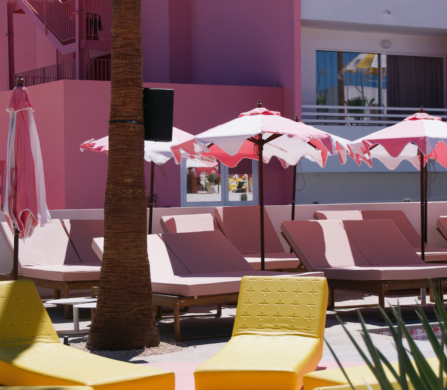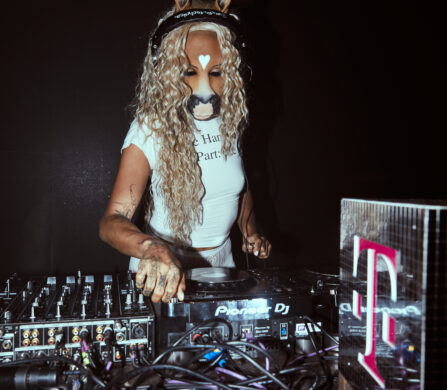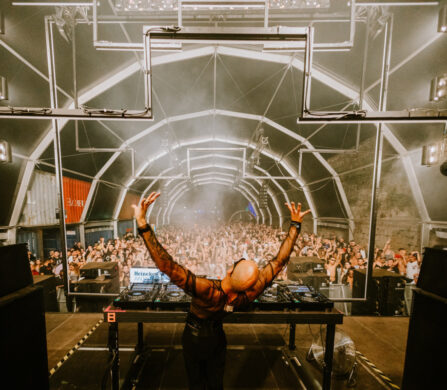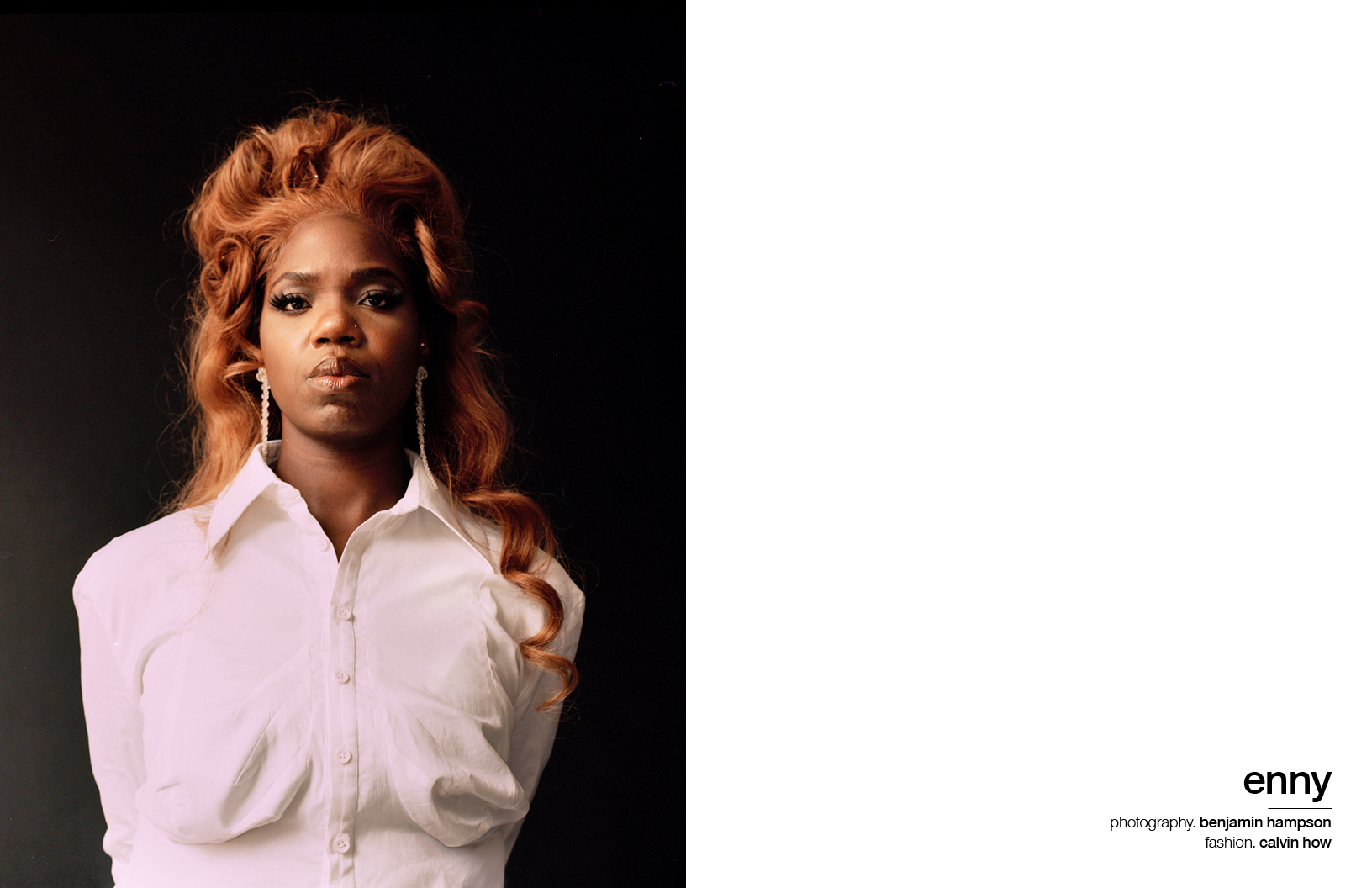
UK rapper Enny is a breath of fresh air. A true artist in every sense of the word, she has taken the London music scene by storm with her unapologetic approach to rap. A true visionary whose music reflects the complexities of everyday life, Enny is pushing the boundaries of what it means to be a rapper today.
Born and raised in South East London, Enny has always been drawn to the raw, gritty energy of hip-hop and the soulful sounds of R&B. Her unique blend of genres sets her apart from the pack. From the track that put her on the map Peng Black Girls to her single on the trials of dating No More Naija Men, Enny’s music defies easy categorization, drawing from a wide range of influences to create something truly original.

It’s not just Enny’s musical style that sets her apart – it’s her lyrics, too. Enny’s has a gift for storytelling, painting vivid pictures of life in inner-city London and touching on themes of identity, social justice, and the struggle for personal and collective liberation. Her work is a reminder that we all have the power to connect through art and music in a world that often feels divided and disconnected. Both raw and polished, Enny’s music is the sound of a young artist pushing herself to new heights, refusing to be confined by the limitations of genre or convention. As she continues to grow and evolve, Enny proves why she is one of the most exciting and dynamic voices in British music today.
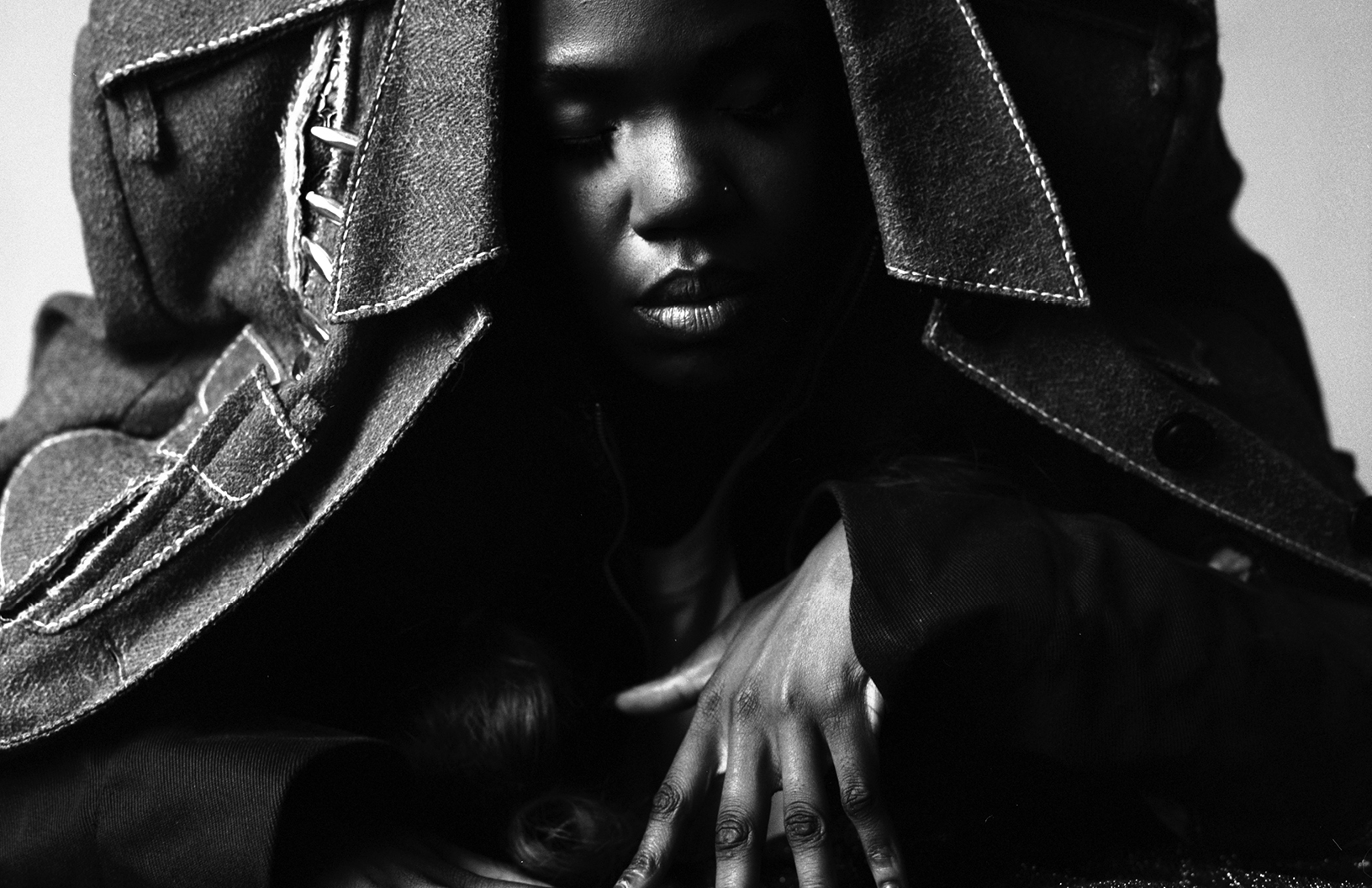
How has your background and heritage influenced how you approach your artistry?
Upbringing will always play a vital role in my artistry. The music I grew up on and the things I’ve been exposed have laid the foundation for the type of human I’ve become.
You grew up in Thamesmead, South London, which has a Black and working-class history. Its recent regeneration may contribute to changes in the area’s demographic. How does that make you feel about home?
I went through ups and downs. Initially, I felt very annoyed but then I felt like I was at a point of acceptance that sometimes things need to change to get better. Even though it’s uncomfortable change is often painful. As long as it’s not displacing people already living there and keeps the core and essence of the community before it shouldn’t be too bad. They’re building homes for people who already lived there to continue living there so far.
How do you balance representing your community and expressing your individuality as an artist?
They both co-exist. I’m just a part of where I come from. Naturally, some of the things I’ve experienced would be something that many people around me may have experienced. I think we’re all living in a similar simulation anyways. If I’m fortunate enough to make a song and people connect to it, that feels like a sense of identity behind a community, and that’s such a beautiful thing.
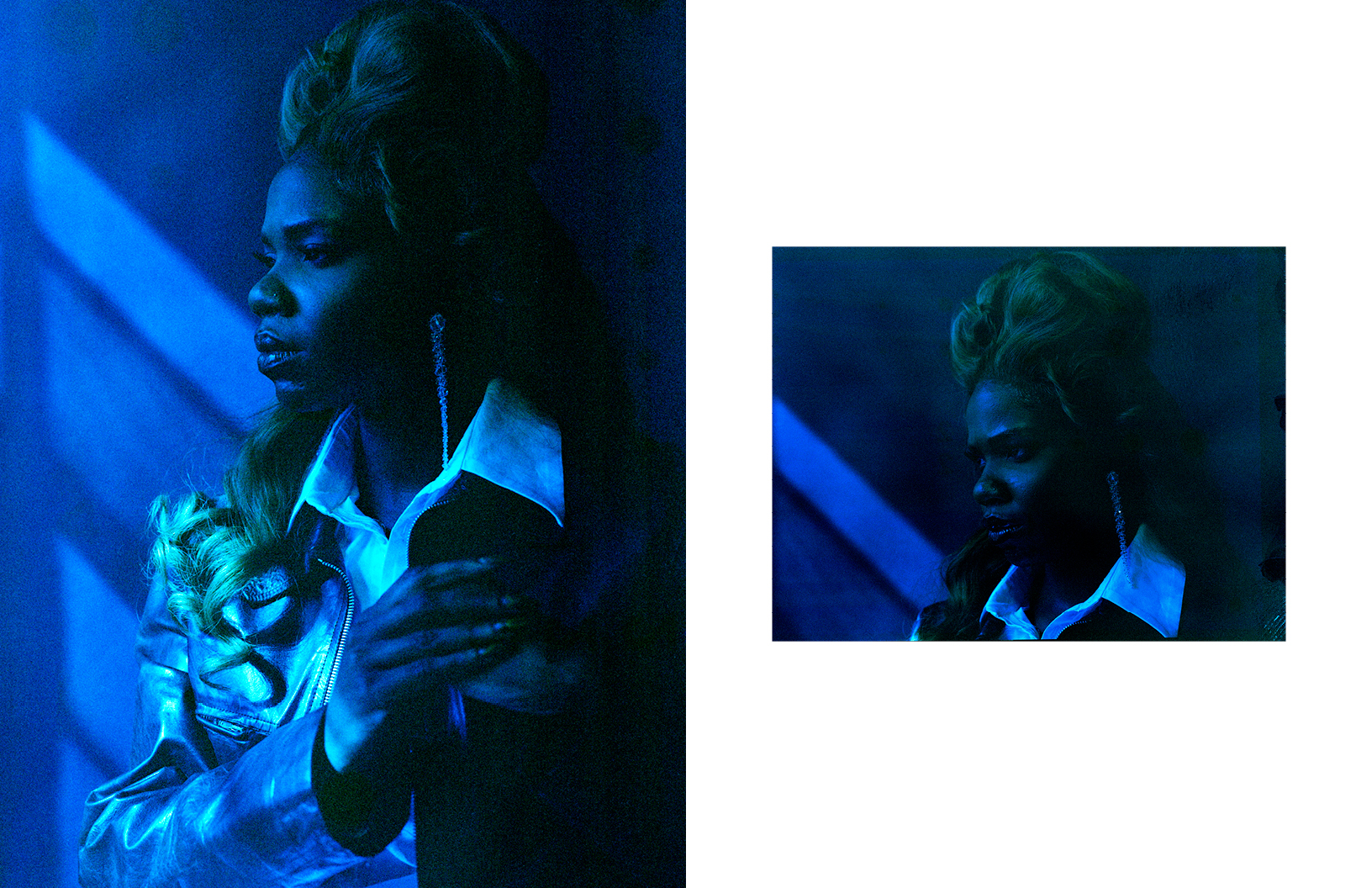
You recently dropped a brand new six-track collection We Go Again. What was the creative direction?
The inspiration behind the whole thing was just how it was formed. It’s sporadic and not intentionally created, but just happened naturally.
You’ve been compared to Lauryn Hill at times. What are your thoughts on this?
It gives me joy in my craft, to be honest. She’s a fantastic artist because her music beautifully conveys her emotions.
Can you speak to any challenges or obstacles you have faced as a Black female artist in the UK music industry?
I’ve never overtly faced any problems in the music industry and I hope that’s something I don’t have to experience throughout my journey making music. I acknowledge that some Black women go through obstacles throughout their music careers but I’m blessed not to have experienced that this far.
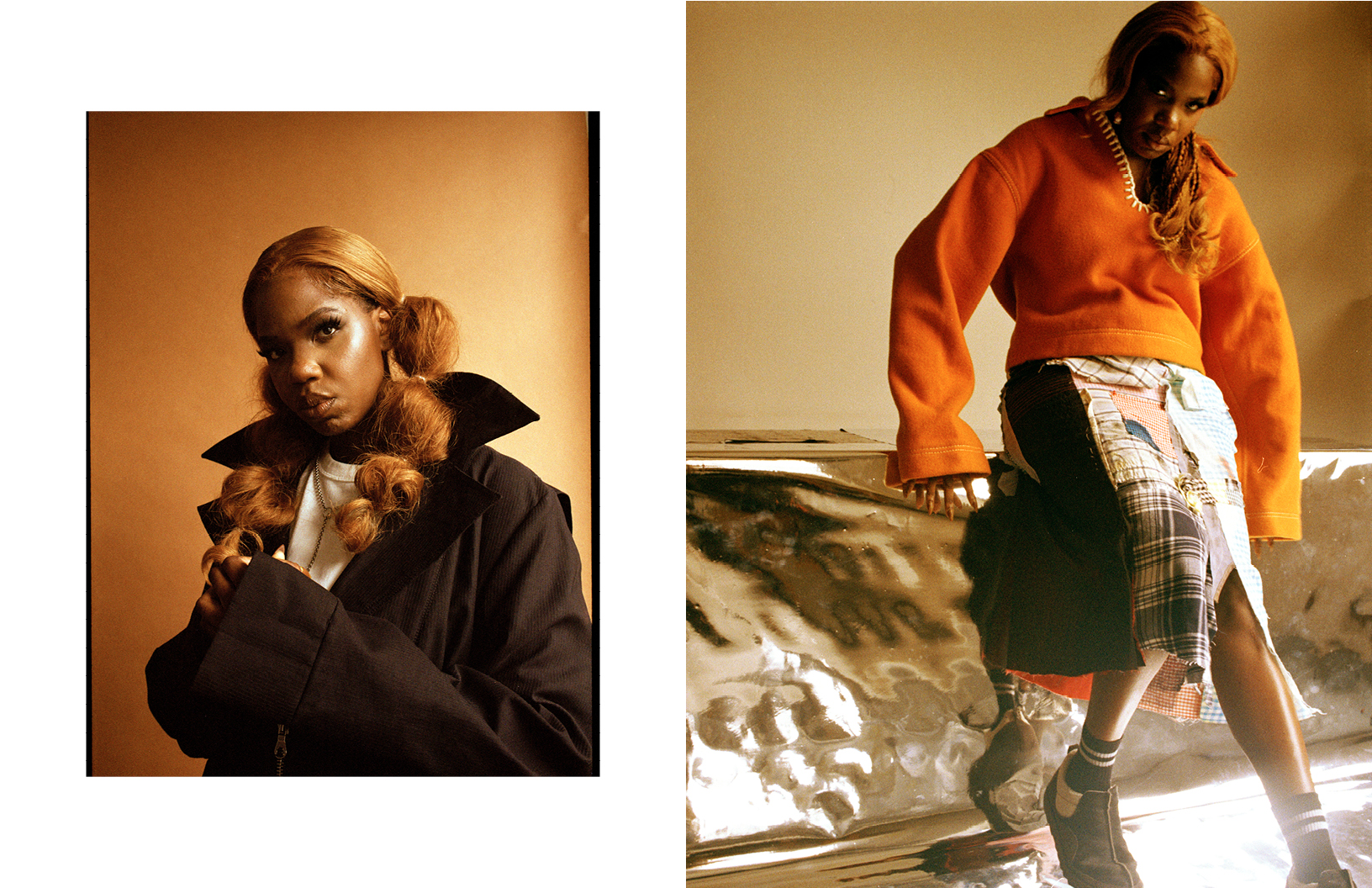
How do you think the UK music industry can better support and uplift Black female artists?
There needs to be an intention to do so. I think people must want and understand why they want to. I feel like Black women don’t want to be pitied for support. In the same way that Black women always champion Black men, I think it must be natural. You can’t force people to want to support you. The urgency has to be genuine.
How do you envision the role of Black and minority artists evolving and shaping UK music culture in coming years?
I can only speak for myself. I want to keep growing. I hope there’s a natural evolution to hone my craft. Craft is the most important thing. I think when people in the music industry understand the value of music, learn to understand it and focus on longevity, that would be better for the culture rather than just trying to knock out hits. For me, I’m just figuring out what I want to be in music as time passes.
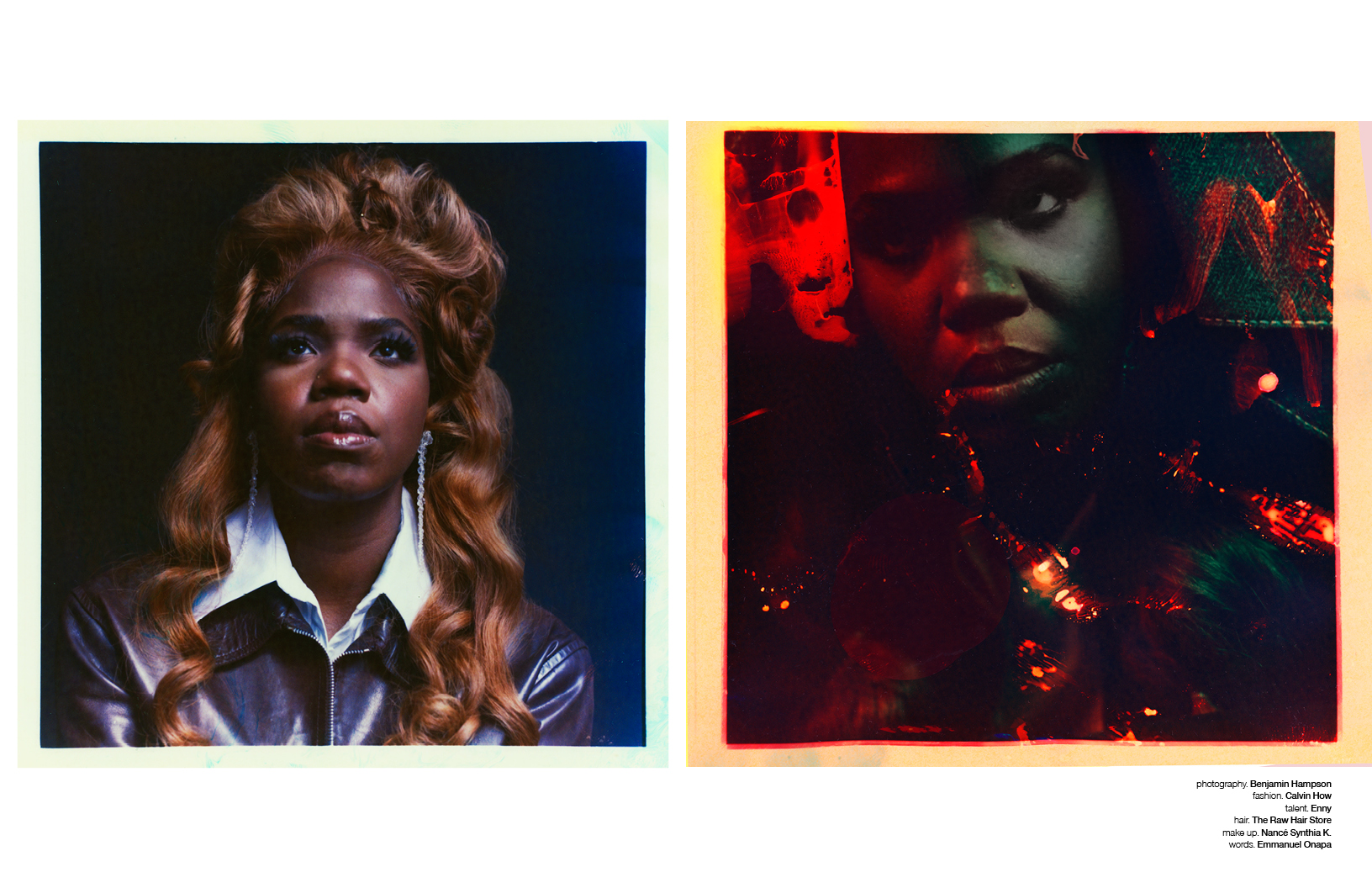 Enny’s new EP ‘We Go Again‘ is out now.
Enny’s new EP ‘We Go Again‘ is out now.
This Schön! online exclusive has been produced by
photography. Benjamin Hampson
fashion. Calvin How
talent. Enny
make up. Nancé Synthia K.
hair. Cassandra Abolaji
words. Emmanuel Onapa


Schön! Magazine is now available in print at Amazon,
as ebook download + on any mobile device












